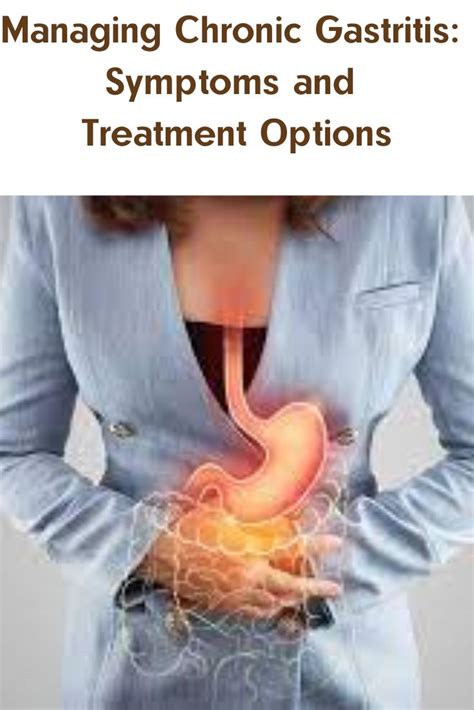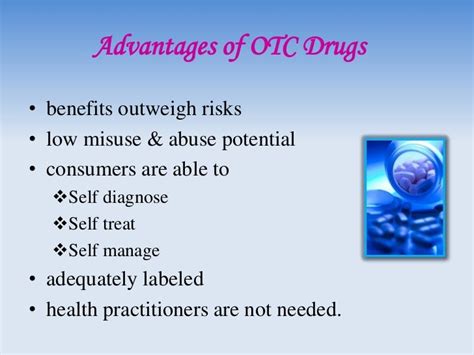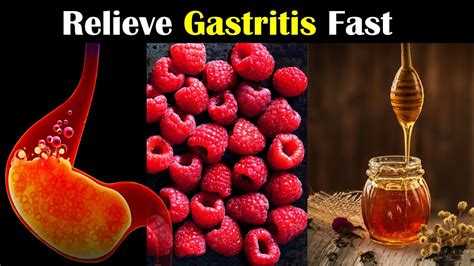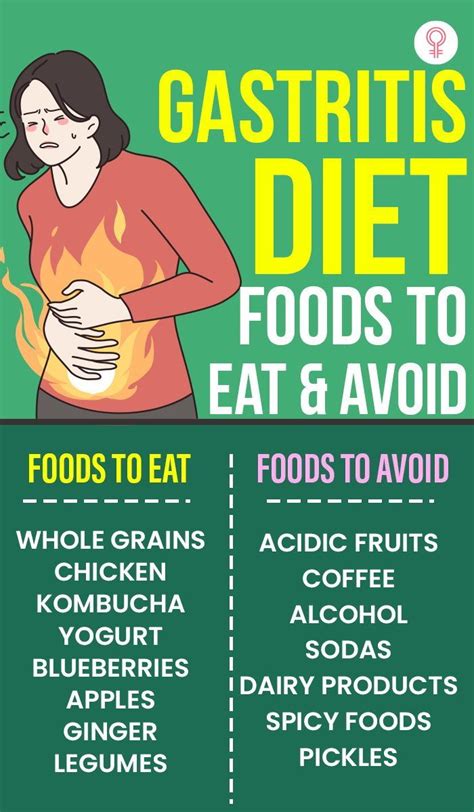Intro
Treat gastritis symptoms with over-the-counter options, including antacids and acid reducers, to alleviate stomach inflammation and pain, promoting digestive health and relief.
Gastritis is a common condition characterized by inflammation of the stomach lining, leading to symptoms such as abdominal pain, bloating, and nausea. While it's essential to consult a healthcare professional for proper diagnosis and treatment, there are several over-the-counter (OTC) treatment options available to help alleviate symptoms. In this article, we'll delve into the world of gastritis, exploring its causes, symptoms, and OTC treatment options, as well as providing guidance on how to manage the condition effectively.
The importance of understanding gastritis cannot be overstated, as it affects millions of people worldwide. Gastritis can be acute or chronic, with the latter being a more persistent and potentially debilitating condition. By recognizing the signs and symptoms of gastritis, individuals can take proactive steps to manage their condition, reduce discomfort, and prevent complications. Moreover, being aware of the available OTC treatment options can empower individuals to take control of their health, making informed decisions about their care.
Gastritis is often caused by a combination of factors, including infection with the bacteria Helicobacter pylori (H. pylori), long-term use of nonsteroidal anti-inflammatory drugs (NSAIDs), excessive alcohol consumption, stress, and a poor diet. Understanding these causes is crucial in developing an effective treatment plan. By addressing the underlying causes of gastritis, individuals can reduce their symptoms, promote healing, and prevent future episodes. In the following sections, we'll explore the various OTC treatment options available for gastritis, discussing their benefits, drawbacks, and potential interactions.
Gastritis Over Counter Treatment Options

OTC treatment options for gastritis typically focus on reducing stomach acid, protecting the stomach lining, and alleviating symptoms. Some of the most common OTC medications for gastritis include antacids, histamine-2 (H2) blockers, and proton pump inhibitors (PPIs). Antacids, such as Tums, Rolaids, and Mylanta, work by neutralizing stomach acid, providing quick relief from heartburn and indigestion. H2 blockers, like ranitidine (Zantac) and famotidine (Pepcid), reduce acid production in the stomach, while PPIs, such as omeprazole (Prilosec) and lansoprazole (Prevacid), block the production of stomach acid.
Benefits and Drawbacks of OTC Medications

While OTC medications can be effective in managing gastritis symptoms, it's essential to be aware of their potential benefits and drawbacks. For example, antacids can provide rapid relief from heartburn and indigestion, but they may not be suitable for long-term use due to their potential to cause constipation, diarrhea, or interact with other medications. H2 blockers and PPIs, on the other hand, can be more effective in reducing stomach acid production, but they may have side effects like headaches, dizziness, or diarrhea. Additionally, long-term use of these medications can lead to dependencies, interactions with other medications, or increased risk of osteoporosis.
Natural Remedies for Gastritis

In addition to OTC medications, there are several natural remedies that can help alleviate gastritis symptoms. These include dietary changes, such as avoiding trigger foods, eating smaller, more frequent meals, and incorporating foods rich in fiber, vitamins, and minerals. Other natural remedies include probiotics, ginger, turmeric, and licorice root, which have anti-inflammatory properties and can help soothe the stomach lining. Furthermore, stress-reducing techniques like meditation, yoga, and deep breathing exercises can also help manage gastritis symptoms by reducing stress and promoting relaxation.
Dietary Changes for Gastritis

Dietary changes play a crucial role in managing gastritis symptoms. By avoiding trigger foods, such as spicy, fatty, or acidic foods, individuals can reduce inflammation and alleviate discomfort. Incorporating foods rich in fiber, vitamins, and minerals, such as fruits, vegetables, whole grains, and lean proteins, can help promote healing and support overall health. Additionally, staying hydrated by drinking plenty of water and limiting caffeine and alcohol consumption can help reduce symptoms and prevent complications.
Lifestyle Changes for Gastritis

Lifestyle changes can also help manage gastritis symptoms and prevent future episodes. Quitting smoking, reducing stress, and getting regular exercise can help reduce inflammation and promote overall health. Furthermore, maintaining a healthy weight, getting enough sleep, and practicing good hygiene can help prevent complications and reduce the risk of developing other health conditions.
When to Seek Medical Attention

While OTC medications and natural remedies can be effective in managing gastritis symptoms, it's essential to know when to seek medical attention. If symptoms persist, worsen, or are accompanied by vomiting blood, black tarry stools, or severe abdominal pain, individuals should seek immediate medical attention. Additionally, if they experience difficulty swallowing, persistent nausea and vomiting, or unintended weight loss, they should consult a healthcare professional for further evaluation and treatment.
Conclusion and Next Steps

In conclusion, gastritis is a common condition that can be managed effectively with OTC medications, natural remedies, and lifestyle changes. By understanding the causes, symptoms, and treatment options available, individuals can take control of their health, reduce discomfort, and prevent complications. If you're experiencing persistent or severe gastritis symptoms, it's essential to consult a healthcare professional for proper diagnosis and treatment. By working together with your healthcare provider, you can develop a personalized treatment plan that addresses your unique needs and promotes overall health and well-being.
We invite you to share your thoughts and experiences with gastritis in the comments below. Have you found any effective OTC medications or natural remedies that have helped alleviate your symptoms? What lifestyle changes have you made to manage your condition? Your input can help others who may be struggling with gastritis, and we appreciate your participation in the conversation.
What are the common causes of gastritis?
+Gastritis is often caused by a combination of factors, including infection with the bacteria Helicobacter pylori (H. pylori), long-term use of nonsteroidal anti-inflammatory drugs (NSAIDs), excessive alcohol consumption, stress, and a poor diet.
What are the symptoms of gastritis?
+The symptoms of gastritis can vary, but common signs include abdominal pain, bloating, nausea, vomiting, and heartburn. In severe cases, gastritis can lead to complications like stomach ulcers, bleeding, or perforation.
How can I manage gastritis symptoms at home?
+To manage gastritis symptoms at home, you can try over-the-counter medications like antacids, histamine-2 (H2) blockers, or proton pump inhibitors (PPIs). Additionally, making dietary changes, such as avoiding trigger foods, eating smaller meals, and incorporating foods rich in fiber, vitamins, and minerals, can help alleviate symptoms.
When should I seek medical attention for gastritis?
+You should seek medical attention if your symptoms persist, worsen, or are accompanied by vomiting blood, black tarry stools, or severe abdominal pain. Additionally, if you experience difficulty swallowing, persistent nausea and vomiting, or unintended weight loss, you should consult a healthcare professional for further evaluation and treatment.
Can gastritis be prevented?
+While gastritis cannot be completely prevented, you can reduce your risk by avoiding trigger foods, eating a balanced diet, managing stress, and avoiding long-term use of nonsteroidal anti-inflammatory drugs (NSAIDs). Additionally, getting regular check-ups and following your healthcare provider's recommendations can help prevent complications and promote overall health.
